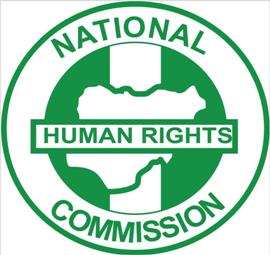As Nigeria joins the rest of the world to commemorate the Day of Zero Tolerance for the practice of Female Genital Mutilation (FGM), the National Human Rights Commission (NHRC) has reminded Nigerians, healthcare workers and other duty bearers of the need to strengthen their collaborations to end the menace of FGM in Nigeria.
The Executive Secretary of the Commission, Dr. Tony Ojukwu, who made this statement in Abuja, noted that the Commission has always been at the forefront of eradicating the painful, unhealthy, harmful and degrading practice of FGM right from time.
He observed that NHRC, in collaboration with the United Nations Population Fund (UNFPA) and Civil Resource Development and Documentation Centre (CIRDDOC), had in 2017 produced a Training Manual on human rights and other related issues of FGM in Nigeria to stem the tide of the human rights violation in various communities across the federation.
“The Manual provides a general background analysis of women’s human rights and Female Genital Mutilation, which is a type of violence against women and girls. The Manual also provides a guide for reporting FGM in line with the prescribed standard,” the Chief Human Rights Officer of Nigeria added.
In the same vein, the NHRC boss disclosed that with the support of UNFPA/UNICEF, the Commission undertook a joint programme on elimination of FGM, conducted training for stakeholders on the use of the developed manual in five programme focal states namely Imo, Ebonyi, Osun, Oyo and Ekiti and available statistics have indicated positive changes geared towards eliminating FGM in the country.
The use of the manual and training will be replicated in other endemic states in the country depending on the availability of resources.
According to the NHRC Executive Secretary, apart from the aforementioned efforts to eliminate FGM in the country, the Commission, with the support of EU-UN Spotlight Initiative in 2019, established the defunct Special Independent Investigation Panel on Sexual and Gender-Based Violence.
The panel which was headed by the Executive Secretary sat in the six geopolitical zones of the country, successfully heard and determined complaints of SGBV, and provided empowerment for victims, including supporting women to acquire skills and engage in various forms of business activities to earn a living and assist their families instead of depending solely on their husbands who may lack the capacity or willingness to cater for their families.
Finally, the Human Rights Advocate used the occasion to urge Nigerians to report all cases of FGM and other human rights violations to the Commission which will in turn take appropriate actions to ensure the protection of the rights of the victims in accordance with municipal, regional and international laws.
